Is My Skin Barrier Really That Important?
I've got Jolie de Feis, Licensed Esthetician Extraordinaire, on the case
Welcome to FAQs, one of my “fun new series” ideas that I hinted at last week.
There are a lot of trending topics in the beauty and wellness world, and even I, as both a brand strategist and writer, have a hard time distinguishing between buzzy marketing terms and genuinely important information. In this series, I’ll be asking professionals that I personally trust / admire to decode these buzz words and share their expertise.
Today’s topic is the skin barrier, and it’s been plaguing my brain for the better part of the past year. It all started last winter when I noticed what appeared to be a red, bumpy beard-rash. Or maybe rash-beard is better… Actually wait — let’s go back even further.
I’d say about 2-ish years ago I started to catch wind of what I like to call the Great Barrier Repair Movement (trademark pending). Seemingly overnight, the internet became obsessed with the idea of “repairing our skin barriers,” with brands, publications, and influencers all preaching its importance. The cynical New Yorker in me clocked this trend as Big Skincare’s newest money-making campaign, but didn’t give it much thought past that point.
That is, until my rash-beard. Clear, soft skin was always my “thing.” Side note: I believe we all have a genetic gift that’s enviable to others. Mine was (is) clear skin. Anyway, this new, very visible, development incited absolute panic. So naturally, I went straight into internet-doctor-mode.
A few hours on Reddit and couple of Hailey Bieber headlines later, I determined it was Perioral Dermatitis. I coughed up for the copay so a dermatologist could corroborate my self-diagnosis. She also prescribed a few topicals to take care of the flare up, and left me with a warning that still haunts me: “my skin barrier needs to be repaired.” Fuck. It’s not just the commercialization of fear-mongering; there’s actually more to be learned here.
The prescriptions tamed the worst of my PD, but as any professional will tell you, skincare is a JoUrNeY, so taking care of my skin barrier is always top of mind. I’ve found a number of skincare potions and lifestyle tweaks that have helped (I’ll get to those later) no matter how many internet rabbit holes I’ve gone down, I know it’s always better to get the information from an actual human with trusted professional experience.
That’s why I asked Jolie de Feis, NYC-based esthetician and writer of Hotline Skin, the #1 skincare newsletter, to weigh in on the matter. Jolie’s newsletter is a never-miss for me; she does a wonderful job of educating her readers about skin health without ever making it feel scary or expensive. She’s approachable, warm, and a wealth of skincare knowledge, so I’m excited to share our conversation about skin barriers.
KS: Ok, first of all. What is the skin barrier?
JDF: The skin barrier is the outermost layer of skin and the skin’s first line of defense. It’s made up of dead hardened skin cells (called corneocytes) and lipids (cholesterol, ceramides and fatty acids). A common analogy is bricks & mortar, with the dead skin cells being the bricks and the lipids as the mortar.
KS: It feels like only in the past 1-2 years we’ve been hearing about this in beauty conversations and product marketing language. Why do you think it’s come to the general public’s attention all of a sudden?
JDF: A few reasons:
We are all healing from the consequences of a damaged barrier, which can happen from over-exfoliating, sun exposure, hot water, lack of moisture, stripping cleansers, just to name a few.
People are understanding how a strong, properly functioning skin barrier is crucial for happy, healthy skin.
People want elastic, bouncy, supple, hydrated skin and that requires a strong barrier.
KS: And so why does it need restoring?
JDF: You can’t achieve any results from your skincare if you have a damaged barrier. If your barrier isn’t working, you are more prone to inflammation, infection, redness, irritation, dehydration, you name it.
Your skin barrier prevents water from evaporating, provides antibacterial support, protects against pollution and UV (and much more). Without a strong skin barrier, nothing works as well or at all.
KS: I personally deal with both eczema and perioral dermatitis, so “restoring my skin barrier” was the internet’s main advice. Does that resonate with your approach?
JDF: Yeah absolutely. I am extremely acne-prone and with any inflammatory skin condition, like acne, eczema or PD, a strong barrier is necessary for healing and prevention. Otherwise, you are just keeping your skin vulnerable to infection, irritation, dehydration and prolonging that cycle of inflammation.
KS: If my barrier is compromised and I’m dealing with these issues, is it better to treat them and then restore the barrier? Or does this happen simultaneously?
JDF: You can’t achieve anything without a strong barrier, so that’s the first thing you need to tackle. That being said, by restoring, strengthening and supporting your skin barrier, you will start to see improvement in these concerns because your skin will be better able to heal and protect itself.
KS: What’s the relationship between our skin barrier and acne?
JDF: Similar to any other inflammatory skin condition, you can’t ever heal or manage your acne without a strong skin barrier. You need a strong barrier to prevent against environmental aggressors, pollution and infection, which can cause inflammation and irritation.
Hydration helps to regulate various processes that are necessary to keep acne at bay, so if your barrier is damaged and your skin is dehydrated, you will overproduce oil and have irregular skin shedding, leading to acne.
A lot of acne treatments are drying and exfoliating (which are necessary, when balanced), but you can’t start using those until your barrier is repaired or you’ll just make the problem worse.
KS: What ingredients would you recommend keeping an eye out for when selecting a “barrier restoring” moisturizer (or product of any kind)?
JDF:
Lipids, like ceramides & fatty acids (ex: jojoba oil, safflower oil, squalane, Ceramide AP, EOP, NG, NP, or NS).
Water-retaining ingredients called humectants (ex: glycerin, urea, hyaluronic acid).
Anti-inflammatory and soothing ingredients (ex: green tea, aloe vera, beta glucan, allantoin).
KS: How do you personally support your skin barrier?
JDF: Everything I do is in an effort to support my skin barrier. Otherwise, there would be no point! Most importantly, I am extremely diligent about sunscreen. I make sure to keep my skin hydrated and am mindful not to over-exfoliate/use too many actives. I use anti-inflammatory products in every routine.
KS: Please give us your recs!
JDF:
Anti-inflammatory/Barrier supporting serums, like Sachi Skin’s Pro Resilience Serum, Experiment’s Super Saturated, NIOD CAIS or CAIL and Environ Colostrum.
CO2 Lift Mask to deeply hydrate and repair
A big thank you to
for this incredible breakdown. Like I said, is an email I’m always excited to receive, so check it out if you haven’t yet. If you want to book an appointment with her in New York, sign up for her waitlist at Practise.In case you were wondering, here are a few things that have helped me in the skin barrier department:
Marie Veronique’s Balancing HypoTonic and Barrier Restore Serum - these are on the pricier side but they’re the real deal. I credit these with helping me get through the worst of my PD.
Experiment Beauty makes a more affordable barrier restoring serum called Super Saturated that I’ve been liking. Their Buffer Jelly oil-gel has been my pre-Gua Sha top coat as of late.
Rhode’s Barrier Restore Cream is a gentle, reliable moisturizer that’s been quite effective for my super dry skin.
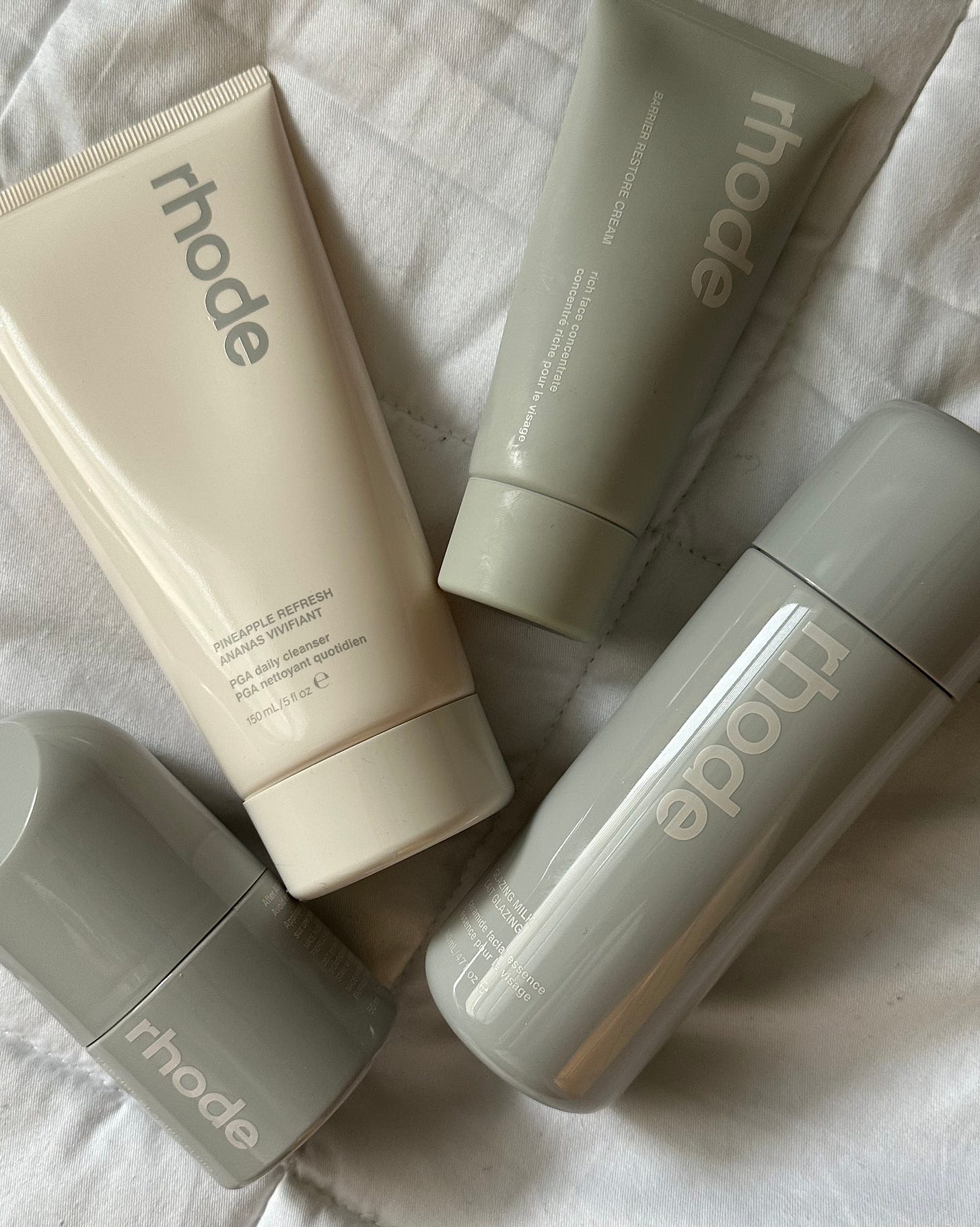
the way I went from Rhode skeptic to Rhode apologist I’ve yet to try Rhode’s cleanser, although I’ve heard great things. I’m still on my Sofie Pavitt Clean Clean Cleanser that’s the only face wash I’ve felt an allegiance to.
Switching my toothpaste to a fluoride-free option. Unfortunately it’s a common cause for PD…
Chilling out with sugar and dairy. Sorry, it’s true. I notice a direct correlation between my processed food intake and my skin flare ups. This is the one I have the most difficulty with, as you can imagine.
That’s all for now. Reply to this email or leave a comment if you want to reach me. :)







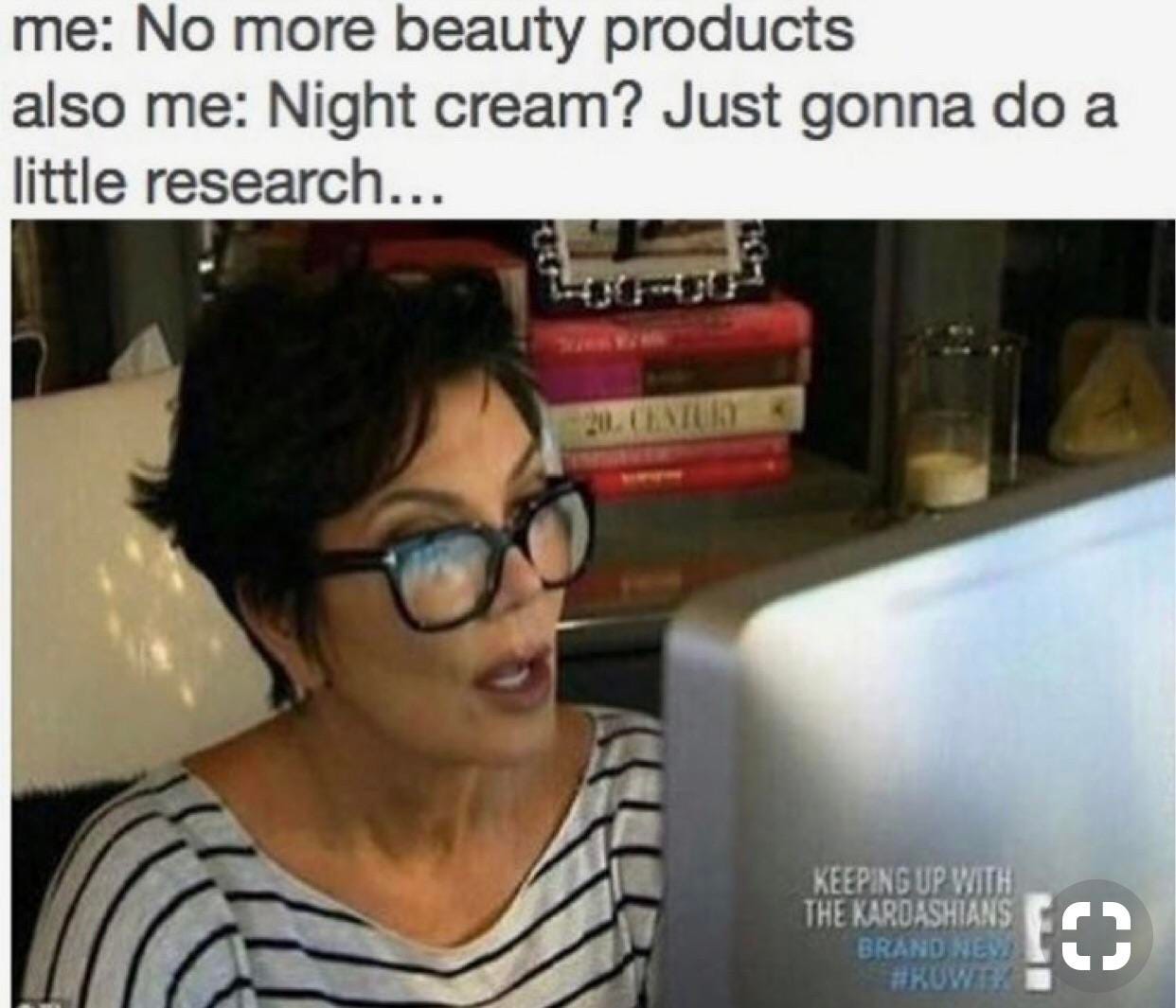
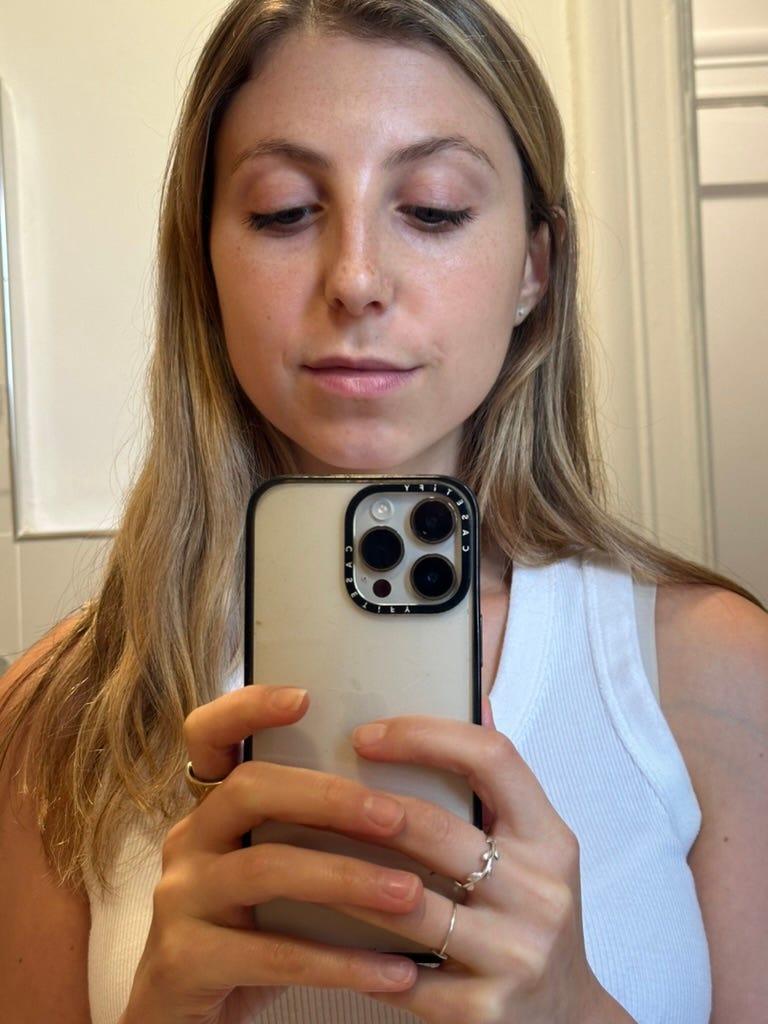


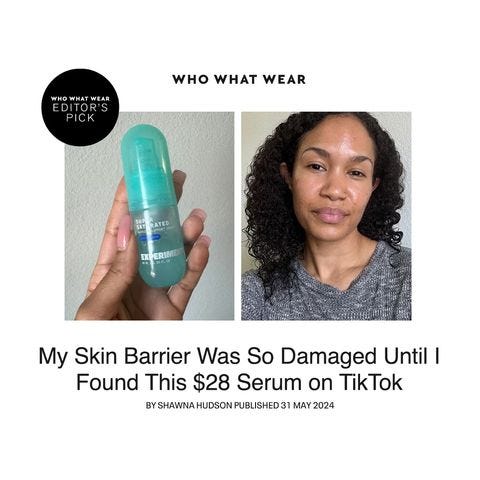
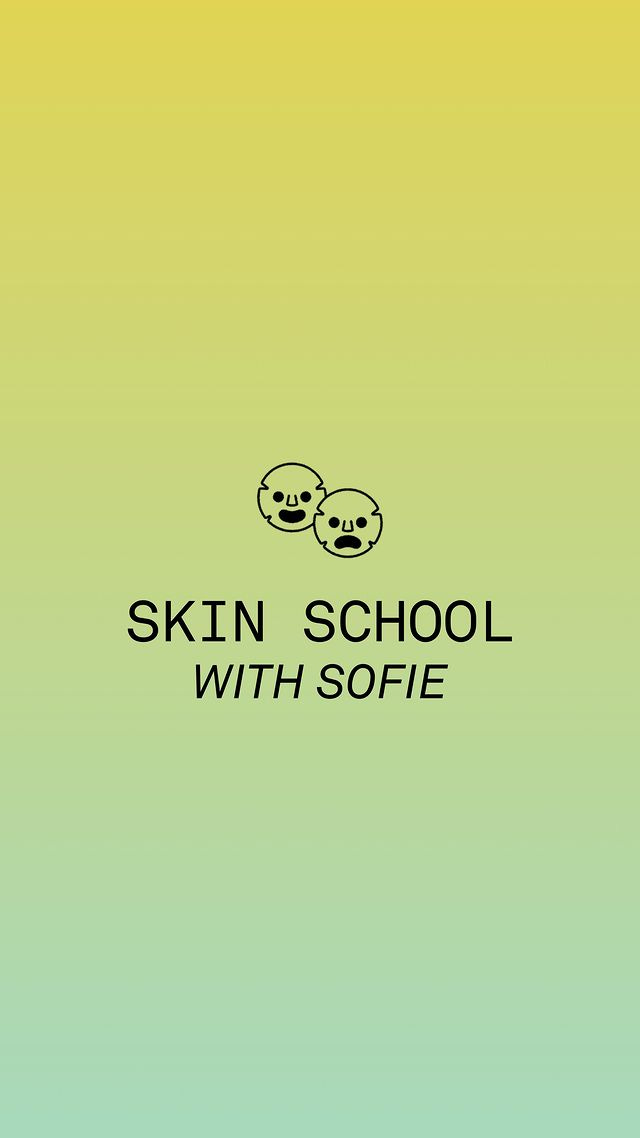

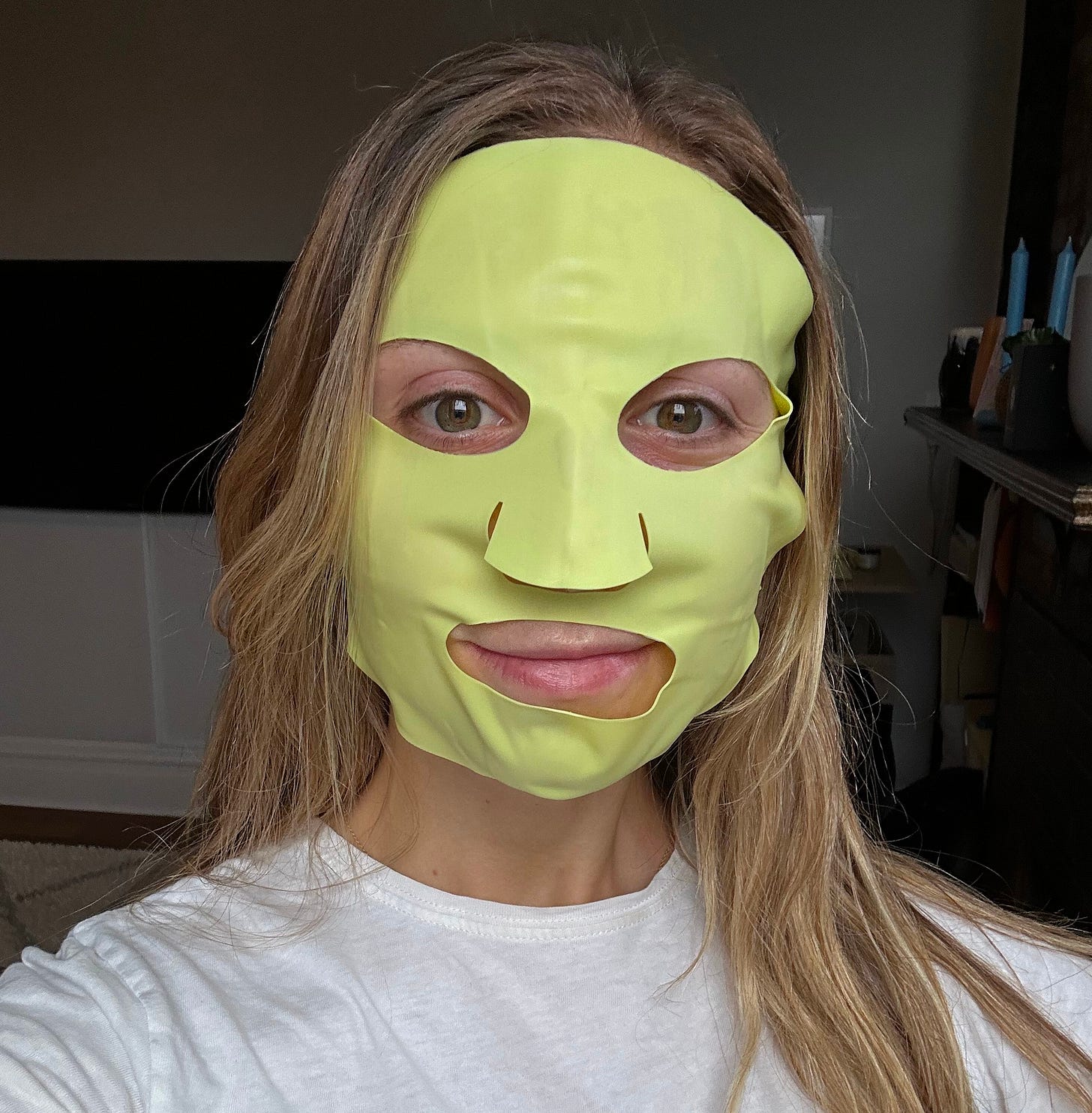

+ 1 to Marie Veronique’s Balancing HypoTonic and Barrier Restore Serum especially if you're acne-prone or have rosacea.
I loved this! I have Hashimoto's disease and my skin started to heal when taken dairy and sugar off my diet and using more gentle products on my skin. You mentioned you switch your toothpaste to a fluoride-free option, me too! I use the brand Tom's just in case you want to try something different.